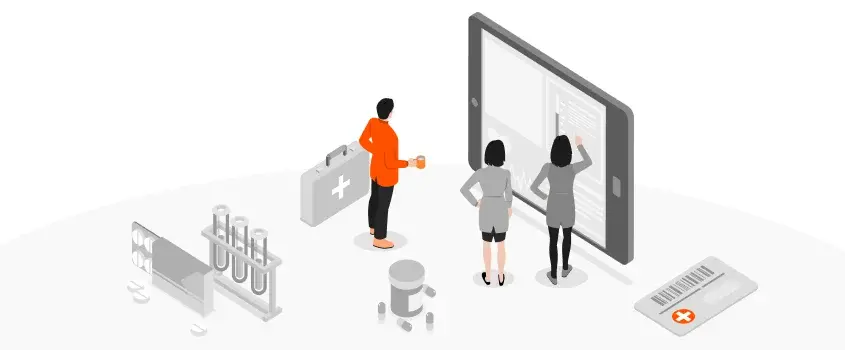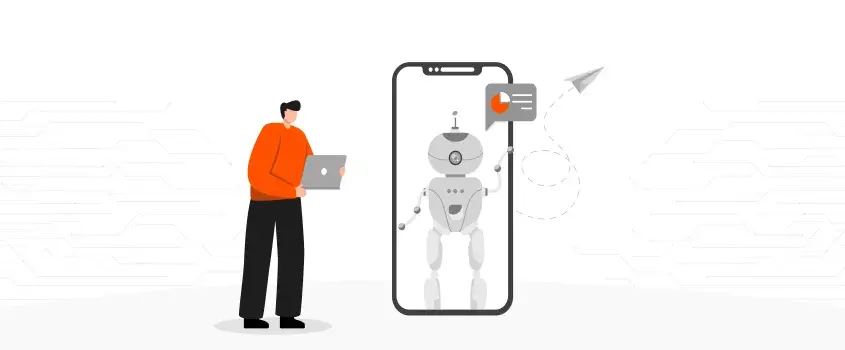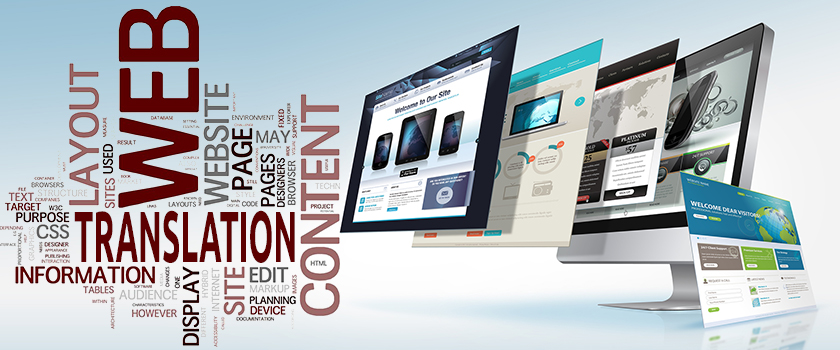ChatGPT’s Role in Improving Healthcare Communication
By: Muhammad Abdullah Posted on Tue, 26-09-2023

2025 Offer Request a Quote Today and Grab a $50 Coupon for Free!
By: Muhammad Abdullah Posted on Tue, 26-09-2023

With the advances in language technology, there is a growing concern about how this technology might be used ethically so that everyone can genuinely benefit from it. And since OpenAI launched its revolutionary product, ChatGPT, in November 2022, this question of using language technology has become even more relevant.
There are different fields in which researchers are trying to explore the potential of ChatGPT, and healthcare is one such field. Due to the fact that healthcare is a highly regulated sector that involves human health, people need to understand where it fits into the field of healthcare or life sciences. Experts suggest that although ChatGPT isn’t explicitly trained in healthcare data, it has the potency to transform patient communication in medical facilities, healthcare settings, and even carrying out clinical research. Through ChatGPT translations, patient communications that involve multilingual clients can especially become better.
According to experts, ChatGPT can really revolutionize the medical device industry. If we take a look at the ChatGPT model, it went through rigorous training that involved about 1.5 billion. These parameters were medical books, healthcare journals, and everything in between related to the medical industry. All this enables ChatGPT to respond to questions and concerns that patients might otherwise put forward to their doctors or care providers.
In fact, the researchers recently tested the performance of ChatGPT on USMLE (the United States Medical Licensing Exam) and the results were astonishing. It scored at or near the passing threshold (between 52.4% and 75%) for all three USMLE exams. Remember this was without any reinforcement learning or specialized training.
In another study, researchers posed 25 common questions, about the prevention of cardiovascular disease (CVD), to ChatGPT. Can you guess its response? The popular ChatGPT returned largely appropriate answers to CVD prevention queries. 21 out of 25 questions ChatGPT answered were appropriate and only 4 answers were inappropriate.
With this huge potential, ChatGPT can play a vital role in processing and analyzing medical data. For instance, companies can employ it within electronic health records (EHR) to identify important patterns. Which in turn can help produce useful insights for the early detection of various diseases. Similarly, the ChatGPT translations can prove to be very useful for patients with limited English proficiency. Thus, this revolutionary language model can bridge the gap between LEP patients and medical information available in other languages.

Researchers are already testing the role of ChatGPT in improving access to healthcare. They are testing its usefulness through digital health apps in non-traditional spaces. Recently, a mental health tech app ran an AI experiment by using GPT-3 to provide emotional support to real users. The GPT-3 is the same language model that ChatGPT uses as a basis. Although this experiment sparked controversy around the drafted messages, AI-based models are definitely finding their way into health services and consumer products. That said, ChatGPT can one day help patients benefit from its translation and communication capabilities in medical products, devices, mobile health apps, customer service modules, and more. However, to ensure the best results, ChatGPT should work in collaboration with human-based quality control measures.
ChatGPT can interestingly help doctors, clinicians, and research professionals improve their efficiency and provide them with more time to interact with patients. Researchers propose that the administrative burden on healthcare providers could become less by using ChatGPT. This OpenAI’s innovative language model has the potential to summarize patient notes, medical records, and other medical documentation. So, physicians and researchers will be saving time in medical writing as well as research proposals. This way researchers would be able to refocus on their patients.
As per a pre-print published on the bioRxiv server, the ChatGPT wrote such convincing research abstracts that scientists were unable to differentiate between them. Blinded human reviewers were successful in correctly identifying ChatGPT-written abstracts 68% of the time only. This shows that ChatGPT can produce high-quality responses even in sophisticated fields like health and medicine. Scientists who use English as a second language can also benefit from ChatGPT-assisted writing and translations. Which will allow clinicians to interact with each other in a better way and improve patient care around the world.

ChatGPT is no doubt a fascinating new development in the field of generative AI. It has the potential to transform patient communication in the medical and healthcare field, but these results are not gonna happen overnight. The “black box” architecture of ChatGPT indicates that this AI chatbot generates answers that lack source material. Hence, it can give out incorrect, irrelevant, and harmful text. For instance, researchers asked ChatGPT some medical questions that patients generally inquire about. In some cases, the information this AI model generated included fake citations of scientific articles.
This is also important to note that ChatGPT has its training until the year 2021. Hence, it lacks information or is not up-to-date yet on current medical best practices and clinical research. For proper functioning, ChatGPT should not only include pre-existing sources but current and real-time sources of data as well. Having the adverse effects of medical misinformation in mind, it would be dangerous to trust this AI chatbot to produce translations or patient communications. It’s only safe after we put stringent quality control measures in place.
Furthermore, generative AI also suffers from the same shortcomings as more conventional predictive AI does. Like predictive AI, ChatGPT, (which is a generative AI system) is only as good and effective as the data that’s used in learning. According to a bombshell study in 2019, healthcare algorithms exhibit racial bias. This proved that algorithms can be racist, ageist, sexist, fatphobic, and more. So if the same biased healthcare data is used to train new algorithms, it will continue to exhibit unfair results. Therefore, it’s vital to first address the prejudices present in the online data. Once the training data is free from all the prejudices, we can expect to improve patient communication and promote equitable access all around.

Mars Translation provides high quality and professional Certified French Translation Services all over the world. We have a team of
Read more
Mars Translation provides one of a kind professional Chinese Document translation services all over the world. All of MT’s translators
Read more
MarsTranslation provides one of a kind Chinese Legal Translation Services. We have a team of native Chinese linguist who specialize
Read more
Chinese Certified Translation services is one of the most asked for service at MarsTranslation. We believe in providing quality services
Read more
Mars Translation is one of the fastest growing companies in the translation industry. This is the reason why we pay
Read more
MarsTranslation has a huge team of website translation specialists in more than 230 languages. Our translators are constantly supported by
Read more
Mars Translation provides high quality and professional Certified Spanish Translation Services all over the world. We have a team of
Read more
Mars Translation has hired some of the best and most experienced Danish translators to work on your translation projects. We
Read more
Medical terminologies are tough to understand and not easy to comprehend by everyone. Although these terminologies are difficult to understand
Read more

